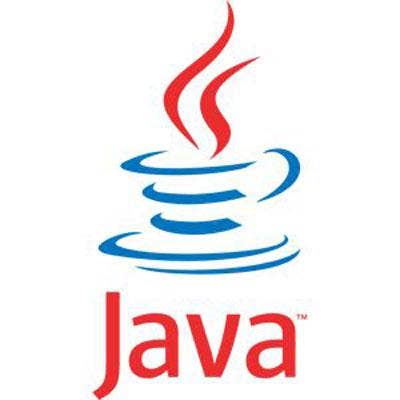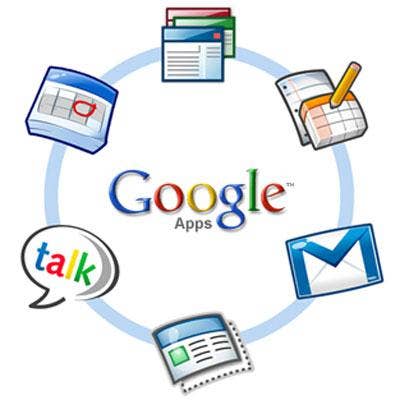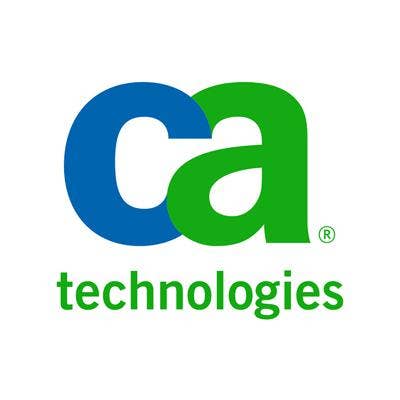11 Software Industry Predictions For 2011

Software In The New Year
In 2010 the software industry had its share of technology winners and losers, big acquisitions and big lawsuits, top executives in and top executives out.
Here's our predictions for the software industry for the new year. One good guess: it won't be boring…

The Coming Battle Over The Future Of Java
When Oracle bought Sun Microsystems for $7.3 billion in January most of the attention was on the hardware technologies the acquisition would bring. But it's become increasingly clear that, from an industry perspective, Oracle's possession of the Java programming language and development platform will have the widest industry ramifications.
Oracle is taking a more aggressive approach than Sun in protecting its Java intellectual property. While vowing to maintain Java's open-source status, Oracle has sued Google charging that Google's use of Java in the Android mobile OS violated Java patents and copyrights.
Earlier this month the Apache Software Foundation quit a key Java standards governing board in a very public dispute with Oracle over Java's direction. We see this battle over the future of Java becoming more heated in 2011, playing out in courtrooms, standards organizations and the marketplace.

Microsoft CEO Steve Ballmer Will Step Down
In 2010 Microsoft was hit with a wave of executive departures, from chief software architect Ray Ozzie, to Microsoft Business Division president Stephen Elop, to Bill Veghte who was instrumental in building Microsoft Office into the franchise it's become. It's a good bet that in 2011 CEO Steve Ballmer will join them.
Microsoft has maintained its Office desktop applications and Windows operating system franchises. But the company hasn't gained much traction in such areas as mobile computing, search engines and cloud computing. What was arguably the most powerful IT company in the 1990s and early 2000s increasingly finds itself playing catch up to Apple, Google and Salesforce.com.
When Ballmer took over as Microsoft CEO in 2000 the company's market cap was $556 billion. As of Dec. 15 it stood at under $238 billion. One wonders how long it will be before Microsoft's board of directors comes to the conclusion that a change is needed at the top.

Hewlett-Packard Will Get Serious About Software
In fiscal 2010 software accounted for a measly three percent of Hewlett-Packard's $126 billion in sales. Under the direction of new president and CEO Leo Apotheker we see HP taking some dramatic steps in 2011 to change that, likely through acquisitions.
What companies could be on HP's shopping list? There's been lots of speculation that SAP is a possibility given Apotheker's stint there as co-CEO and CEO. But companies that develop infrastructure and/or systems management software might fit better with HP's server and storage hardware, data center services and business technology optimization tools.
None of this necessarily means that HP's software efforts will be successful. The company has acquired dozens of software companies over the years, but some of them have just disappeared into HP. Anyone remember BlueStone software, the Internet software platform and tools vendor HP bought in 2001 for $470 million?

Software Vendor Consolidation Accelerates
True, Oracle has already been on a multi-year acquisition spree. IBM, on its way to spending $20 billion on acquisitions through 2014, bought some 15 software companies in 2010. And CA Technologies spent more than $1 billion in a little more than a year to acquire six cloud computing technology vendors.
But all indications are the acquisitions will go on in 2011, probably at a quicker pace. Big IT vendors like IBM and Oracle are sitting on lots of cash and are likely to spend it as they try to keep their product lines current with fast-changing markets.
Look for Dell, Oracle and other vendors to acquire smaller companies with storage management technology. Major vendors will likely follow CA's lead and go on the hunt for startups with cloud system management tools. And expect a wave of acquisitions of small companies with social networking and collaboration applications.
The Beginning Of The End Of The Relational Database
Relational databases like Oracle, IBM DB2 and Microsoft SQL Server, will remain the core of most online transactional processing systems for years to come. But in 2011 we'll see next-generation database technologies being increasingly adopted for next-generation applications.
2011 can expect broader use of document-oriented "NoSQL" databases such as 10gen's MongoDB and the Apache Software Foundation's Couch DB. Also look for wider use of databases designed to handle huge volumes of data such as Apache Cassandra and its commercial implementations from vendors like Riptano, and technology from startups like Cloudera that build "big-data" management systems on the Apache Hadoop platform.

Cloud Computing Adoption Extends To PaaS And IaaS
Cloud computing has been hot for a few years now. But a great deal of the adoption has been in the Software-as-a-Service (SaaS) arena, specifically CRM apps like Salesforce.com, desktop apps from Google and other apps that are easy to adopt and use on a standalone basis.
But in 2011 many businesses will move into the next phase of cloud computing and embrace cloud-based IT infrastructure services (Infrastructure-as-a-Service) and cloud-based tools for developing, testing and maintaining software (Platform-as-a-Service). While still only a fraction of total spending for cloud services, increased adoption of PaaS and IaaS will signal that cloud has truly arrived.
IBM will be the big winner here because it has moved aggressively into PaaS and IaaS. But others like Oracle, Google and Amazon will also benefit from PaaS market growth. Red Hat is also a company to watch thanks to its Makara acquisition.

Online App Exchanges Become A Bigger Channel For Businesses
App stores for consumers, especially the Apple App Store, really took off in 2010. We predict 2011 will be the year that businesses, especially SMBs, really turn to online stores to acquire the software they need.
True, Salesforce started its AppExchange back in 2005, so the idea of businesses relying on such sites to acquire software isn't new. But in 2010 app stores popped up everywhere, including the Google Apps Marketplace, Intel's AppUp, Intuit's Workplace and the Zoho Marketplace. A recent SMB Group survey of small businesses found that more than half used or planned to use such online marketplaces to acquire software.
This, of course, complicates things for solution providers who are still figuring out how to fit cloud computing and Software-as-a-Service applications into their business models. Online exchanges are another nail in the coffin of the old "reseller" way of doing business.

Firefox 4 Closes In On Internet Explorer 9
Firefox's market share, which has been stuck around 31-32 percent for more than a year, will get a boost once Mozilla releases the final version of Firefox 4 in early 2011 and all of the inevitable bugs are worked out. The anticipation has built all through 2010 as Mozilla released one beta version after another of the next generation of the open-source browser.
Microsoft Internet Explorer, meanwhile, has been steadily losing market share and recently fell below the 50 percent market in October, according to StatCounter Global Stats. Microsoft is expected to ship IE9 in 2011, putting the two leading browsers on a collision course.
Firefox probably won't pick up enough ground in 2011 to surpass Internet Explorer – but we're betting it'll get close. IE9 won't run on Windows XP, only on Windows Vista and Windows 7, and a big question is how many Windows XP users opt to switch browsers instead of upgrading to Windows 7 as Microsoft is betting.

CA Technologies Moves Into The Limelight
CA Technologies has largely been relegated to the second or even third tier of IT vendors. But thanks to a spending spree of more than $1 billion since mid-2009 to acquire a half-dozen developers of cloud infrastructure and management software, CA in 2011 will play a more important role in the IT industry than it has in years.
As cloud adoption becomes more widespread demand will increase for the acquired products and services, such as the Oblicore service level management tools, 3Tera private cloud platform, and Nimsoft IT performance and system availability monitoring technology. And company executives are promising to expand those offerings in 2011 with more virtualization and Software-as-a-service capabilities.
The downside? CA Technologies could become an attractive takeover target by IBM, Oracle or some other big vendor looking to expand its own cloud computing management offerings.

Social Networking For Businesses Goes Mainstream
Consumer-focused social networking sites like Facebook and Twitter have been around for a while. Collaboration tools for businesses, however, such as the more recently introduced Salesforce.com Chatter, are a more recent development.
It's our prediction that use of these social networking tools will become very widespread within businesses in 2011, for everything from knowledge management and project collaboration to marketing applications and customer support. Gartner is predicting that sales of "social CRM" tools alone will reach $1 billion in the new year. We also expect that the convergence of collaboration and communications tools will continue, if not accelerate, in 2011.
There's been a ton of hype around social networking applications for businesses in recent years and, as usual, the promise has been a few years early. In 2011 it will become reality.

The Number Of Android Applications Will Explode
In 2010 the market for Apple iPhone/iPad software exploded with more than 300,000 apps available by the end of the year. Much of the focus on Apple was driven by its successful iPad tablet, which runs the same iOS operating system as the iPhone.
But the number of mobile devices that use Google's Android OS continues to grow: IDC forecasts that total Android-powered device shipments will reach 68 million units by 2013, putting it ahead of the iPhone and BlackBerry and behind only Nokia's Symbian. The number of applications available for Android devices has surpassed and that number is sure to surge in 2011.
While the number of applications available for the Apple iOS will certainly continue to grow in 2011, some of the novelty of Apple's products will begin to wear off and in the new year developers will devote more attention to Android devices.